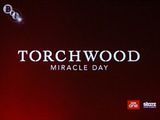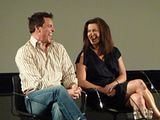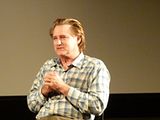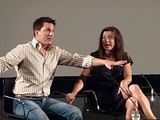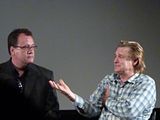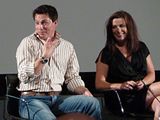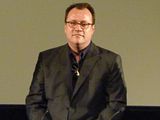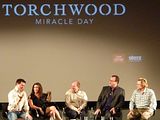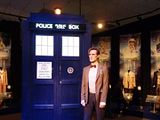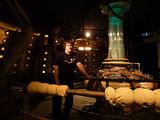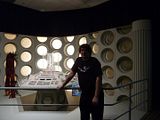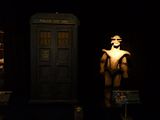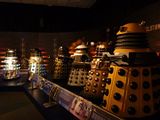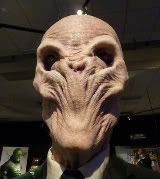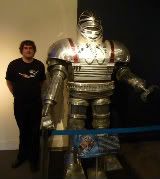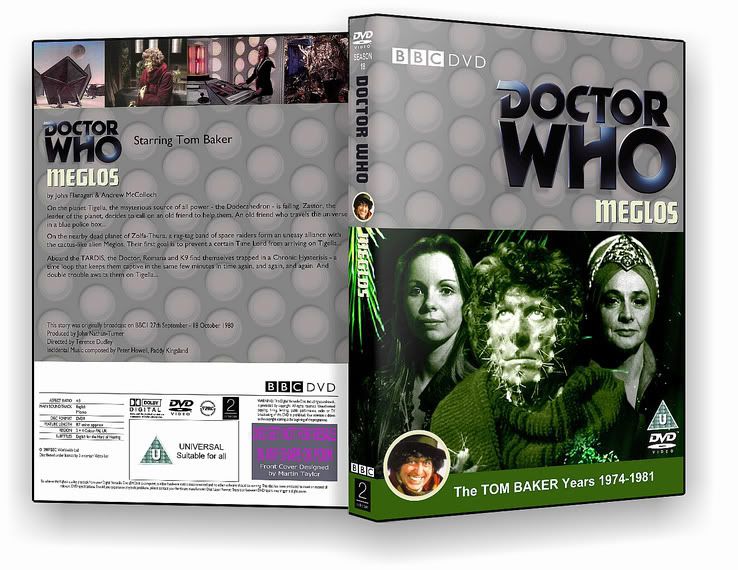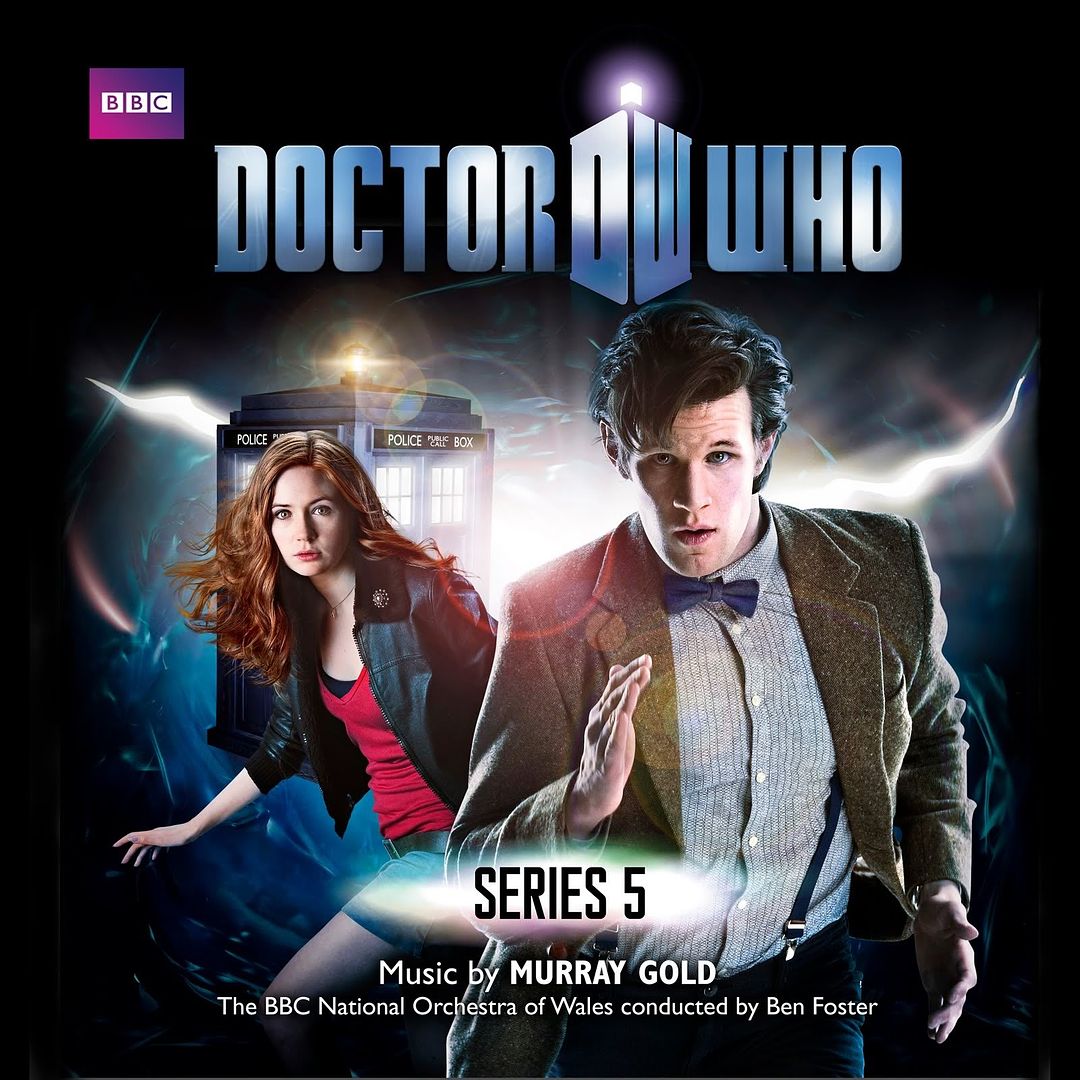Torchwood: Miracle Day - preview and Q&A at the BFI
Tuesday, 21 June 2011 - Reviewed by Chuck Foster
Yesterday, UK fans got their first real taste of what to expect from the new series of Torchwood, with the first episode of Miracle Day shown as a special preview at the BFI. Interest in the episode and the chance to hear cast and crew talk about it swept across the Net very quickly, with tickets sold out within a few hours of going on sale!
These kinds of events are a good time to catch up with friends you only ever really seem to meet at conventions and the like; the Internet has made chatting so easy now that you can sometimes forget what people look like - or indeed not know who they are when they've only ever been behind the text on your screen! And with so many fans together in a relatively small environment it is inevitable that both the enthusiasm and pensiveness of the gathering bleeds together - great, it's finally back - will it be too American? - how do you follow Children of Earth? - it's BILL PULLMAN! - and so on ...
So would the episode live up to anticipation?
Episode One - The New World
Well, yes really. I must admit its opening scenes had me worried, as it did come across as a bit of "American twee" - this feels so familiar from those endless shows that work their way through the schedules of Sky, Universal and FX. However, it doesn't take long to forget this - within a couple of minutes you're witness to a scene that makes it clear that this show could never be on before the watershed. And I realised afterwards that I'd already accepted the style of the show by the time we reached the Welsh 'wilderness' - substitute "filmic" for "American" now!
The story plays out quite slowly - there are some 10 episodes to fill after all - and it did seem longer than Children of Earth in spite of the running time, though this might of course be down to how engrossing the storyline becomes. It certainly isn't boring, and there are plenty of the traditional Torchwood trappings and set pieces to jolly it along. Not to mention quite a bit of humour, both light and dark ...
In some ways it felt a little like a reboot - as with Everything Changes (and Rose/Smith and Jones in Doctor Who) the story unfolds in the eyes of those naive to what they are about to encounter. However, Miracle Day is a continuation of Torchwood, with references to the former series and of course in the development of the characters we already know and love and re-meet as the episode progresses.
Director Bharat Nalluri makes excellent use of the Welsh and Californian locations that feature in the story, and the flitting between the two locations is seamless. As I mentioned earlier, there are some very filmic moments (sweeping landscapes, grand sets, both real and studio), and this is reflected by composer Murray Gold, whose music could almost be out of a Bond movie at some points! Indeed, there is little to connect this with the "house" style of his Doctor Who opuses, and all the more better for it - though of course he pays homage to the familiar Torchwood stings we know of old.
Question and Answer session
After the episode we were treated to a panel featuring John Barrowman, Eve Myles, Russell T Davies and Bill Pullman, who during the course of the session dipped into how they found filming the series in Los Angeles, how the series and characters have developed, and of course fun and laughter on set (what could you expect from John Barrowman?!!).
It was quite clear from the start that all of the actors found working together to be great fun, not to mention a little mutual admiration between those from the UK and those in the US. Being a self-confessed sci-fi "geek", JB gushed about his crush on BP from Spaceballs and had never expected to work with him at Warner Bros! He was also thrilled to have worked with the likes of Nana Visitor from Deep Space Nine, John De Lancie and Ernie Hudson. BP observed that with the distinguished Welsh cast he knew he was going to work with he was worried that what he termed a "Valley Girl" might be cast on the US-side, but in the end it was a sterling cast and crew all round.
Both JB and EM agreed that part of what they like about Torchwood is how the characters are grounded in reality - they have 'real' personalities, backgrounds and futures, and exhibit the human flaws and foibles. Part of Jack's makeup makes him very similar to Oswald Danes, in that both characters are known to have killed children (though of course in very different circumstances), with JB commenting that makes the two characters finally meeting poignant, both recognising something in the other.
Talking about the relationship between Jack and Gwen, RTD said that there was no romantic relationship between the two characters, and that their friendship comes from the deep respect, trust and affection they have for each other - Gwen has played a fundamental role in keeping Jack "human", and in turn he's been looking out for her family behind the scenes since Torchwood 'vanished'. Of course in reality the two are also firm pals, though John's reknowned capacity for practical jokes 'almost' fractured their friendship when he decided to play a prank of hiding in her shower and jumping out at her after a long early morning shoot, giving her one of the biggest frights of her life.
The cast enjoyed their time on the Warner Bros set in Los Angeles, with the "Hollywood lifestyle" fitting in rather well! With the studio lot so large, travelling about in golf buggies became the norm, though John got his own bicycle, complete with basket to carry his scripts in. Eve was very impressed in the sets they had, especially on how they had faithfully recreated the look of places like Gwen's parents' home (will we be able to spot the difference between the Welsh and Warner Bros versions?!!!).
Commenting on the potential "Americanisation" of the show in future (hopefully!) series, RTD was very frank in saying that should Starz want to continue and the BBC didn't want to co-produce then it could well become a wholly US-centric show; however, he felt that the show's Welsh roots were something that he'd really want to keep if he could. He also heaped praise upon his co-writer Jane Espenson, whose contributions helped bring Miracle Day together. BP revealed earlier in the discussion that upon receiving the scripts for his character it took him less than two days to accept the role based on the quality of writing and the storyline.
Responding to one audience question about the Doctor, RTD made it clear that he should never appear in Torchwood, as that would make children want to watch a show that clearly isn't aimed at them. Characters could move the other way of course, with Jack's origins being in the original show of course, and both Gwen and Ianto had appeared, too (when someone asked about Jack becoming the Face of Boe, RTD wryly pointed out that he wrote that!) JB wouldn't be drawn on whether Jack would be back in Doctor Who though ...
The atmosphere throughout the panel was very upbeat, with everyone on fine form and humourous banter bouncing between themselves. Examples included how RTD joked about BP actually accepting the role as he needed a new kitchen paid for, and EM explaining how JB doesn't like chickens and he responding with a comment about cockerels ...
Conclusion
All-in-all, it looks like the new series of Torchwood is going to be as dramatic as Children of Earth, though whether the plot can sustain itself over twice as many episodes as the former remains to be seen. At least Russell T Davies explained that the storyline is self-contained so we shouldn't end up with a load of potentially unanswered questions at the end of the series like some of the other recently cancelled shows coming out of the States ...
... except of course whether there'll be another series to follow!
These kinds of events are a good time to catch up with friends you only ever really seem to meet at conventions and the like; the Internet has made chatting so easy now that you can sometimes forget what people look like - or indeed not know who they are when they've only ever been behind the text on your screen! And with so many fans together in a relatively small environment it is inevitable that both the enthusiasm and pensiveness of the gathering bleeds together - great, it's finally back - will it be too American? - how do you follow Children of Earth? - it's BILL PULLMAN! - and so on ...
So would the episode live up to anticipation?
Episode One - The New World
(the following is a spoiler-free review of the episode, but some aspects might be considered spoilers for those who don't know the premise and press details for the show)
Well, yes really. I must admit its opening scenes had me worried, as it did come across as a bit of "American twee" - this feels so familiar from those endless shows that work their way through the schedules of Sky, Universal and FX. However, it doesn't take long to forget this - within a couple of minutes you're witness to a scene that makes it clear that this show could never be on before the watershed. And I realised afterwards that I'd already accepted the style of the show by the time we reached the Welsh 'wilderness' - substitute "filmic" for "American" now!
The story plays out quite slowly - there are some 10 episodes to fill after all - and it did seem longer than Children of Earth in spite of the running time, though this might of course be down to how engrossing the storyline becomes. It certainly isn't boring, and there are plenty of the traditional Torchwood trappings and set pieces to jolly it along. Not to mention quite a bit of humour, both light and dark ...
In some ways it felt a little like a reboot - as with Everything Changes (and Rose/Smith and Jones in Doctor Who) the story unfolds in the eyes of those naive to what they are about to encounter. However, Miracle Day is a continuation of Torchwood, with references to the former series and of course in the development of the characters we already know and love and re-meet as the episode progresses.
Director Bharat Nalluri makes excellent use of the Welsh and Californian locations that feature in the story, and the flitting between the two locations is seamless. As I mentioned earlier, there are some very filmic moments (sweeping landscapes, grand sets, both real and studio), and this is reflected by composer Murray Gold, whose music could almost be out of a Bond movie at some points! Indeed, there is little to connect this with the "house" style of his Doctor Who opuses, and all the more better for it - though of course he pays homage to the familiar Torchwood stings we know of old.
Question and Answer session
After the episode we were treated to a panel featuring John Barrowman, Eve Myles, Russell T Davies and Bill Pullman, who during the course of the session dipped into how they found filming the series in Los Angeles, how the series and characters have developed, and of course fun and laughter on set (what could you expect from John Barrowman?!!).It was quite clear from the start that all of the actors found working together to be great fun, not to mention a little mutual admiration between those from the UK and those in the US. Being a self-confessed sci-fi "geek", JB gushed about his crush on BP from Spaceballs and had never expected to work with him at Warner Bros! He was also thrilled to have worked with the likes of Nana Visitor from Deep Space Nine, John De Lancie and Ernie Hudson. BP observed that with the distinguished Welsh cast he knew he was going to work with he was worried that what he termed a "Valley Girl" might be cast on the US-side, but in the end it was a sterling cast and crew all round.
Both JB and EM agreed that part of what they like about Torchwood is how the characters are grounded in reality - they have 'real' personalities, backgrounds and futures, and exhibit the human flaws and foibles. Part of Jack's makeup makes him very similar to Oswald Danes, in that both characters are known to have killed children (though of course in very different circumstances), with JB commenting that makes the two characters finally meeting poignant, both recognising something in the other.
Talking about the relationship between Jack and Gwen, RTD said that there was no romantic relationship between the two characters, and that their friendship comes from the deep respect, trust and affection they have for each other - Gwen has played a fundamental role in keeping Jack "human", and in turn he's been looking out for her family behind the scenes since Torchwood 'vanished'. Of course in reality the two are also firm pals, though John's reknowned capacity for practical jokes 'almost' fractured their friendship when he decided to play a prank of hiding in her shower and jumping out at her after a long early morning shoot, giving her one of the biggest frights of her life.
The cast enjoyed their time on the Warner Bros set in Los Angeles, with the "Hollywood lifestyle" fitting in rather well! With the studio lot so large, travelling about in golf buggies became the norm, though John got his own bicycle, complete with basket to carry his scripts in. Eve was very impressed in the sets they had, especially on how they had faithfully recreated the look of places like Gwen's parents' home (will we be able to spot the difference between the Welsh and Warner Bros versions?!!!).
Commenting on the potential "Americanisation" of the show in future (hopefully!) series, RTD was very frank in saying that should Starz want to continue and the BBC didn't want to co-produce then it could well become a wholly US-centric show; however, he felt that the show's Welsh roots were something that he'd really want to keep if he could. He also heaped praise upon his co-writer Jane Espenson, whose contributions helped bring Miracle Day together. BP revealed earlier in the discussion that upon receiving the scripts for his character it took him less than two days to accept the role based on the quality of writing and the storyline.
Responding to one audience question about the Doctor, RTD made it clear that he should never appear in Torchwood, as that would make children want to watch a show that clearly isn't aimed at them. Characters could move the other way of course, with Jack's origins being in the original show of course, and both Gwen and Ianto had appeared, too (when someone asked about Jack becoming the Face of Boe, RTD wryly pointed out that he wrote that!) JB wouldn't be drawn on whether Jack would be back in Doctor Who though ...
The atmosphere throughout the panel was very upbeat, with everyone on fine form and humourous banter bouncing between themselves. Examples included how RTD joked about BP actually accepting the role as he needed a new kitchen paid for, and EM explaining how JB doesn't like chickens and he responding with a comment about cockerels ...
Conclusion
All-in-all, it looks like the new series of Torchwood is going to be as dramatic as Children of Earth, though whether the plot can sustain itself over twice as many episodes as the former remains to be seen. At least Russell T Davies explained that the storyline is self-contained so we shouldn't end up with a load of potentially unanswered questions at the end of the series like some of the other recently cancelled shows coming out of the States ...... except of course whether there'll be another series to follow!
